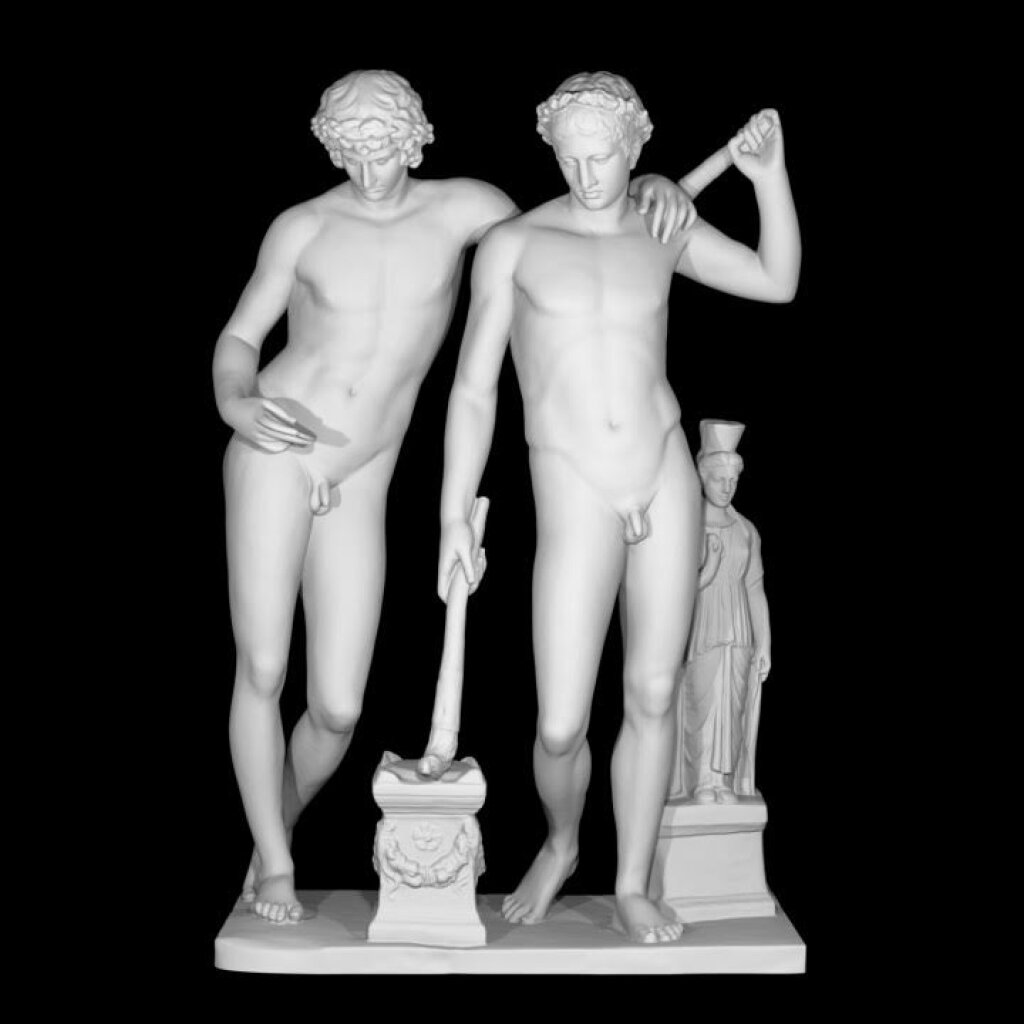Editor's Note: This week, All the Russias will be running a series of excerpts from Ainsley Morse's new translation of Andrei Egunov-Nikolev's Beyond Tula: A Soviet Pastoral. The volume will be out from Academic Studies Press on 20 May and will include an introduction by Morse, which may be found here. This is Part III in the series; Part I is here and Part II is here.
Ainsley Morse studies, teaches and translates Russian and Yugoslav literatures.
Chapter Two [excerpt]
“Come on, come on.” The co-op operator dragged Sergey into the neighboring room, illuminated by a dim little window high up the wall.
“You were right not to live in the village—people would have lurked under your windows to see what you were up to. And you and I have secrets, after all—I’m nobody’s fool. Well, she keeps saying that these days the evening light is more flattering, that she’s only got three years left to live, because after forty your face only shows vestiges of the cursed past, and that’s when she’ll really need her innocence. But I tell her: we’re not going anywhere anytime soon, don’t you worry. Just don’t worry. I did some secret calculations. Mitenka says, ‘I’ll buy a revolver: I need to learn to be a perfect shot, just in case.’ But he’s got it all wrong. Everything needs to happen in silence—I’m nobody’s fool, after all. You aren’t his relative, now, are you? You weren’t at the university together? As for me, brother, I graduated from the Moscow Institute of Commerce.”
When Sergey’s eyes adjusted to the half-darkness, he could make out the threadbare but, by all means, mahogany furniture distributed about the room. It all looked uncomfortable, cracked and falling apart, but was of an unmis- takably aristocratic design. An outdated chart with portraits of revolutionary leaders hung above the couch. The co-op operator ushered Sergey over to the opposite wall, where there was another chart with carefully traced lines:
Registration of persons having made it past eighty, by profession: Wetnurses—2. Shepherds—3. Cardinals and bishops—6. Merchants—11. Painters—3. Sailors—2. Musicians—2. Stewards—10. Officers—21, 3 of them field marshals. Popes—1. Philosophers—18. Scholars—23. Schoolchildren—4. Soldiers—12. State ministers—4. Gravediggers—1. Doctors—6. Co-op operators—?
The co-op operator shifted his gaze from Sergey to the revolutionary leaders’ portraits and snickered conspicuously. “Did you get it, about the ones on top?”
Darya Fyodorovna came in and asked whether to serve them dinner, but the co-op operator was loping dreamily around the room. A porcelain Easter egg was hanging in the corner beneath the icon case; paper roses, already very ancient, were pinned thickly to the icons.
“What a tiresome circumstance,” complained Darya Fyodorovna. “The son died from scarlet fever, so they won’t allow an open coffin. What do you two want for dinner?”
“What dinner? You think we’re interested in dinner when Fyodor’s friend has arrived? And your circumstance is tiresome ’cause you don’t know how to live right.”
Big Al made his entrance, smooched with the co-op operator, and started relating, “Buddy of mine, three days now I’ve been planning to go to Moscow, but somehow I just can’t leave—there’s so much cultural education to be done here.” The young engineer winked.
Another couple of beers appeared on the table, foamy as the engineer’s blond curls. Everyone clinked bottles and Big Al continued his tale. “Romania is a shitty country. People sell all kinds of garbage right out of their houses, right out the window, all over the place; there’s a lawyer in every house and his wife is up to all kinds of dirty business. When I was there, all my underwear got stolen. There are thousands of pillows on the beds, stacked up with the smallest one on top, but they think it’s gauche to sleep on them. In a word—bourgeois bullshit.
“But why bother remembering war stories, that’s all in the past. Let’s drink to the health of today’s educational front!”
After he drank, Big Al left.
The co-op operator splashed the remaining beer onto the chart with the revolutionary leaders’ portraits. “I know everything, y’hear. When Fyodor Fyodorovich first showed up, Domasha went over to his landlady’s place like she was just visiting, sat there for hours, and ended up staying the night. She made up her bed on the floor in the room that’s in between Fyodor’s bal- cony and his drafting studio, right on the threshold. And what do you think? Fyodor stepped right over her, y’see, very politely, and settled in to work at his desk nearly all night long. Domasha was so insulted she didn’t sleep a wink either. As for me, y’hear, I got it right away: a hermit and a draftsman . . . You know, I myself am . . . anyway, I put my trust in your student’s word of honor.”
“I’m not a student,” Sergey objected.
“Yeah, right! Don’t be shy, now: that’s what I’ve got my red corner all fitted out for.”
“Yes,” continued the co-op operator. “It’s too bad Leo Nikolaich didn’t write poetry, but some poems are wonderful—they just go straight to the heart, especially the ones written by young ladies. The day before yesterday Domasha came by, all stern and gloomy. I took a dig: ‘Wherefore this sadness on the exquisite features of a young face?’ ‘The sadness,’ she answered, ‘is ’cause I want some grub.’ But I kept at her: ‘Crazed, agonized, I want happiness and tears, and I love you endlessly.’ And what do you think? She stayed to have dinner with me! Well, I grabbed a can of sprats from the co-op so her feelings wouldn’t be hurt at dinner.”
Sergey looked at the co-op operator’s paunch, at his rosy little cheeks, and resolutely said, “I write poems too.”
“Hurrah,” howled the co-op operator. “I love students and poets. Anyway, a true student is always a poet: Up and over, one hump down, up and over, two humps down. Could you remind me of your last name? . . . Very pleased to meet you. Are you related to the famous one?”
“Of course, I’m his son.”
“Well, over there in Yasnaya Polyana Leo Nikolaich spawned a whole pile of kids, and they’re all talentless; it’s a real tragedy. Talent doesn’t always carry over. But hey, brother, let’s hear your poem.”
“Sure,” said Sergey. “Just a minute. All right: ready, set . . .”
The co-op operator made to kiss him. “You’re an oasis in the Arabian desert. Hey now, look after yourself, you and I still have to live for the future. So, brother, trust means trust. Scoot over. One, two, three . . .”
Sergey reckoned, Now there’s going to be a card trick, and the card I choose will turn out to be lying at the top of the deck. Then they’ll start playing forfeit. The loser’s head will be covered with a kerchief; he will become an oracle. Everyone will come up to him, touch the top of his head with a finger and ask what this forfeit should do. He will designate one of them a mirror, another the lighter of streetlamps, and order the third to hop in circles on one leg.
“See,” said the co-op operator and moved the heavy table aside. The table’s one leg began as a column, then widened into a red oval—smaller than the tabletop, but still large and comfortable, like a footrest.
Beneath the table, there was a ring lying in a hollowed-out depression in the floor, like a jeweler’s masterpiece in its little box. The co-op operator spread his fat thighs wide. When he grabbed the ring, a secret hatch opened up. A few steps of a wooden staircase could be seen leading down into the black hole.
“Is that a grave?” Sergey was curious.
“No, it has everything you need for the continuation of life. Nothing to worry about. I’m trusting you, brother. Now go down into the crypt.”
The lit candle guttered to the side, doused by the co-op operator’s breath.
Down below there was a cement floor and air deprived of season. It smelled neither of summer or winter, but of eternity: lard, candies, kerosene. It was cooler down in the basement than it had been coming down the stairs, with a belly from behind weighing heavily on Sergey, and the candle in raised hand threatened to drip hot stearin onto the top of his head.
The copper candlestick was placed on a barrel.
“I come down here to enjoy solitude amid the scarce commodities. See, here in this basket I have maraschino liqueur—ordered it from Moscow. My sacred principle is: scarce commodities for scarce people. There isn’t enough for the whole village anyway, so what’s the sense in giving it out by the eighth or the pinch? Better for the people to suffer: it elevates their souls, and there are so few of the rest of us—we need to look after ourselves for the sake of the future. A healthy stomach is the guarantor of digestion. Just you wait, we’ll turn out to be healthier than everything else: it’s the lot of the people, their happiness . . . You want some salami? It’s pretty fatty.” The co-op operator twirled his knife around.
“What am I sitting on here?” asked Sergey. “It’s hard, with sharp edges.” “Get up and feast your eyes.”
The co-op operator untied the sack and drew out a block of lump sugar that resembled Kazbek.
“Isn’t it a beauty?”
Chapter Three [excerpt]
“But over here I have granulated too, look.”
He threw handfuls of the sugar onto the floor. In the candlelight it looked like it was snowing.
“Well, what do you say—does it crunch?” The co-op operator strutted back and forth around the basement. “Y’see, I really started missing the good life. You know: a frosty winter day, a Sunday, in the morning—tea with lots of sugar, Filippov cakes, church bells; you sip on that Chinese brew through a lump of sugar, then off to Sokolniki on sleds.26 Little bells, a patterned lap rug with roses gleaming on it even in January. And a little rose sitting next to you as well. You walk around hand in hand with her under the pines, and it crunches beneath your feet.”
“I’ve seen the Northern Lights,” said Sergey. “It was on the corner of Nevsky and Sadovaya in St. Petersburg. Violet and dark-blue stripes twining above the lights of the Pavilion de Paris. It was very cold, and I got on the tram.” “Who cares about sugar!” bellowed the co-op operator. “It’s despicable prose—stomp on it, brother, don’t be shy; and believe me when I say that 'Baal will be toppled and love returned to the earth!' . . .”
A playful twittering really was carrying down from upstairs.
The co-op operator, holding his hands like a guitar player, sang out a song of invitation, accompanying himself on imaginary strings: A kiss is a moment of pleasure, a kiss is a moment of triumph.
French high heels appeared on the stairs—pale slippers on bare feet. Someone was coming down, backside-first and singing. The co-op opera- tor fell upon the descending feet and, despite some resistance, managed to plant several kisses onto the flat soles. Then white batiste shot up into his hands, and the mysterious stranger leapt down onto the basement floor with a thud.
“Oh! Who’s that?”
“Never mind, never mind, he’s my best friend, he won’t give you away . . .
Listen—curses always come home to roost.”
The co-op operator looked at Sergey for an instant with the same expression he had directed toward the granulated sugar.
Sergey kissed the lady’s proffered hand and said, “I believe I have already seen your dress: it stood opening and closing the gate this morning. You are Leocadia, are you not?”
“Oh, so my name is already known to you? Ah, what a naughty boy! And we’ve only just met, how bizarre . . . So tell me, are you as much of a hermit as Fyodor Fyodorovich? I’ve just come by for a minute to cool off. It’s hot as hell outside, and there are so few cultured people around; I’ve got no one to socialize with.”
She smoothed her ethereal dress, which had suffered some on the headlong flight down the stairs. A ring with a turquoise shone blue on her calloused pinky.
“Oh, right,” Sergey remembered. “I have to go.”
And he began to make his way up the stairs, accompanied by the co-op operator’s words: “Delicacy—now that’s something I’ve always respected. Well, see you soon. Wait for me by the gate, y’hear.”
Above ground, everything was very bright. The mahogany furniture stood there, bored, and the revolutionary leaders’ portraits were still wet from the beer. The pit gaped in the middle of the floor, illuminated from below. Sounds were coming out.
“. . . Goddess . . .”
“. . . Crazy madman . . .”
After these shrieks, the light went out—all that was left was a taciturn hole. The hatch door lay nearby.
Just slam the hatch, drag the heavy table on top—in a month they’d find two skeletons down there in the vault, entwined in deathly love! And I’d walk around the village keeping mysterious silence when asked: where did our co-op operator get to? Where is the exquisite Leocadia? . . . Oh, but I’m an idiot. Sergey whacked himself on the forehead. All the scarce commodities are down there. They could live for years and years! Though the co-op operator said that he can’t stay put in any one place for more than a year . . . The squeal of a newborn baby will issue forth from below ground. They’ll break through the floorboards and out from the vault will come Leo Tolstoy, all grown over with a long beard, and Leocadia will leap out like some kind of Madonna with an infant in arms. The baby will be christened “Crypt” or, as they say around here, “Cropt” . . . Oh, but I’m an idiot—there’s no water down there! They’ll die slowly, agonizingly, their parched lips will vainly seek the moisture of kisses. The maraschino liqueur will not cool them. Doubtless, down there underground, taciturn Leocadia will forget how to speak entirely. But the co-op operator will start digging a tunnel with his knife, and they’ll crawl out like moles, blinking in the sun, somewhere in a field of grain, among pregnant reaping women. Or an underwater spring will drown them in liquid, and they’ll float around, sealed in the basement like sardines in a tin . . . But I’m really on the verge of downfall, thought Sergey, gazing at the black and silent aperture. I only just got here and I’m already ready to commit a crime. Oh, Leo Tolstoy, save me—this is your district, after all!
Sergey ran headlong out of the room into the open air.
But out on the porch things felt even more dreary. A horse was nib- bling at the dust-covered grass with utter disinterest. Mindless, disgusting chickens drank water out of the slops bucket. Still, the far-off fields were shining, flooded by sun. Fyodor is over there, working and probably wiping away the sweat with his sleeve. There are lanes walled and arched with wooden lattices, covered amply with new shoots and the thick leaves of grapevines; walking through them, you feel like you were walking down the hallway of your own apartment. Enormous bunches of grapes hanging from the inner arches beckon the eyes and lips, and the built-in cisterns, their water flowing along canals, offer charitable refreshment to limbs enervated by the daytime heat.
Sergey sat down on the stoop and took a book out of his pocket. Against the rounded edges of the surrounding landscape, the Gothic script seemed especially tiny, sharp, and tile-roofed.



